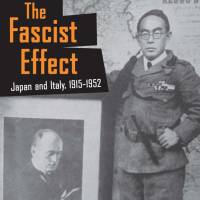In "The Fascist Effect," Reto Hofmann, a postdoctoral fellow at Waseda University, argues that it is pointless to ask whether Japan was fascist in the years leading up to and during World War II — until we listen to what Japanese at that time thought about fascism.
The Fascist Effect: Japan and Italy, 1915-1952, by Reto Hofmann.
224 pages
CORNELL UNIVERSITY PRESS, Nonfiction.
Hofmann's overarching argument is that fascism was a flexible concept that Japan had as much a hand in shaping as did Italy and Germany. He moves from a look at the cultural reception of Italian fascism, from early adopters like Shimoi Harukuchi, who claimed personal friendship with Benito Mussolini, to kabuki plays and biographies of Mussolini that emphasized his ability to unify Italy against capitalists on one hand and communists on the other.
Hofmann then explores the 1930s, when thinkers on the right criticized fascism as both problematic and alien while at the same time repackaging its essentials under new terminology, asserting a uniquely Japanese solution to the challenges of modernity: kokutai (national polity), and ōdō (Imperial way). In the end, Hofmann argues that this evasive redefinition has muddled the postwar debate about fascism in Japan, and obscured the materialist problem that fascism proposed to resolve: the great upheavals resulting from global capitalism's tendency to crisis.
In the wake of recent recessions and calls to make countries great again, readers would do well to re-orient the present by studying Hofmann's account of Japan's past.



